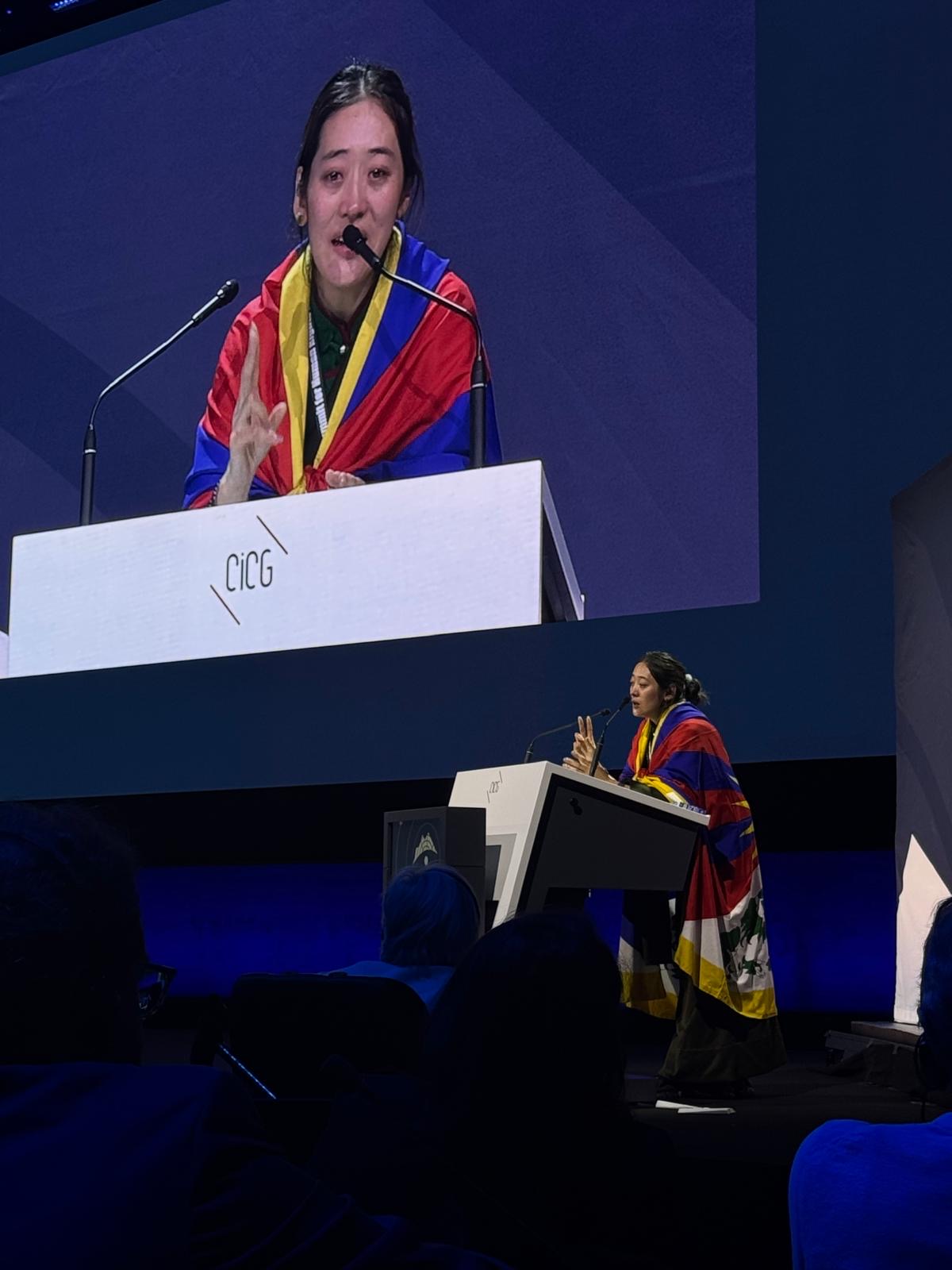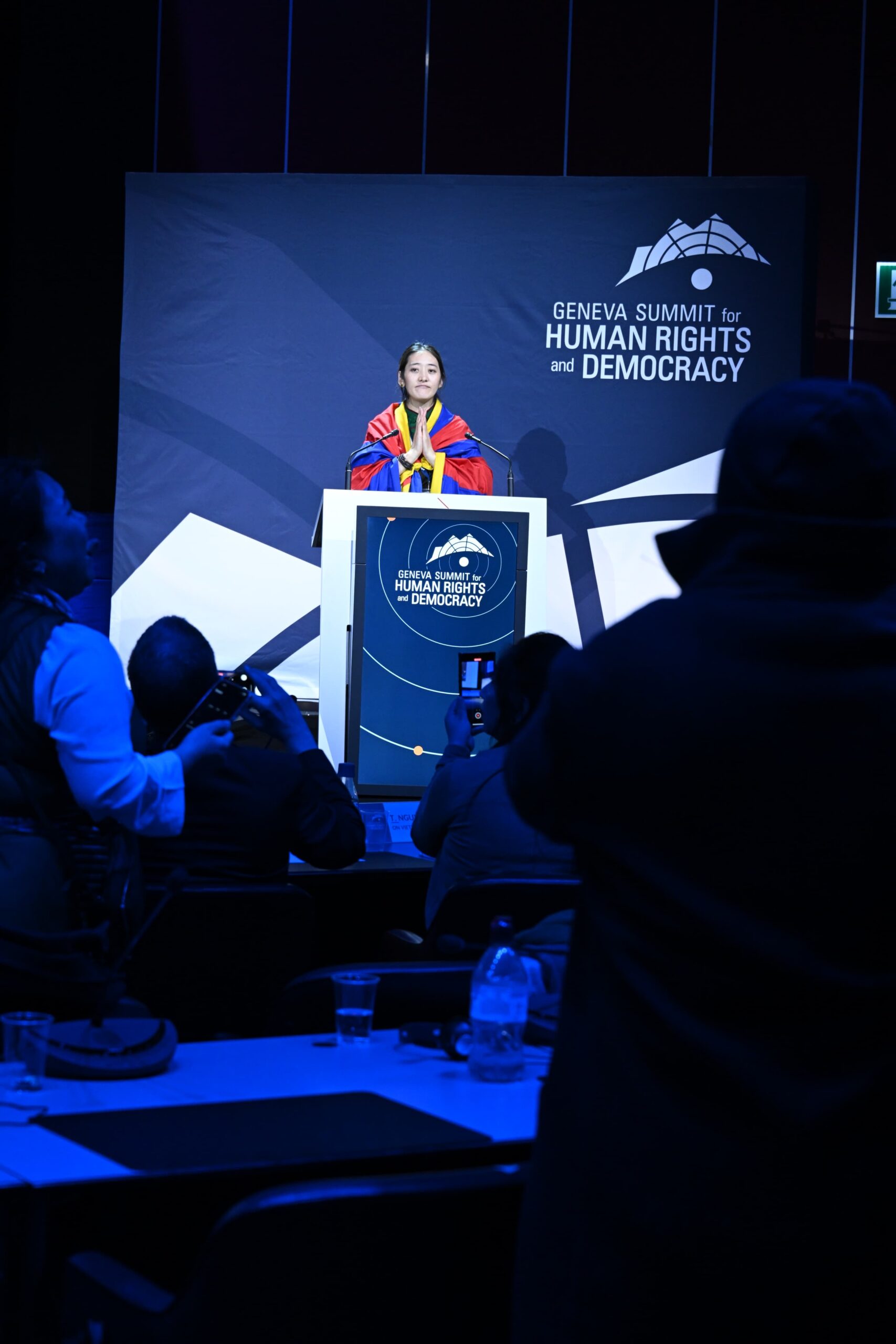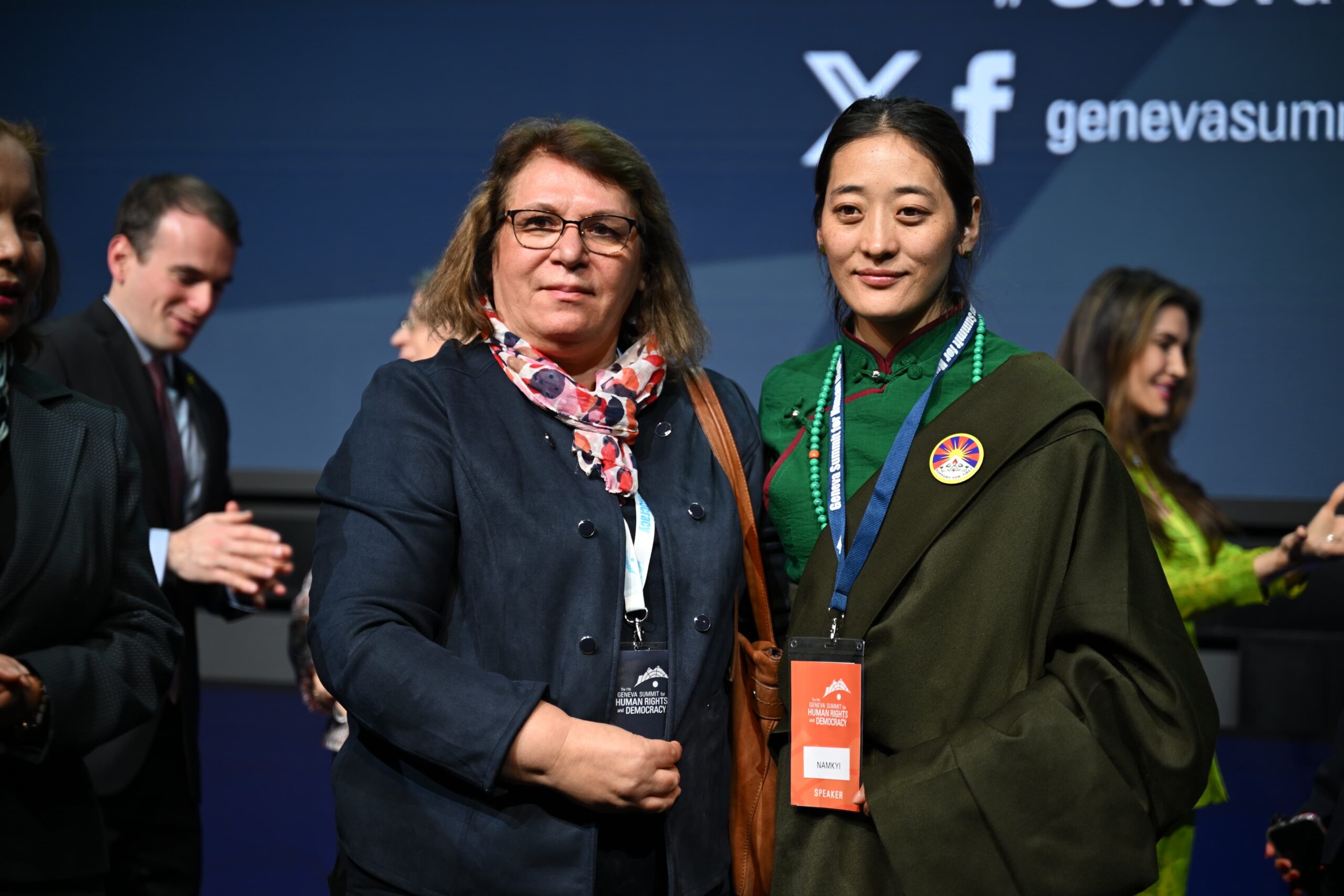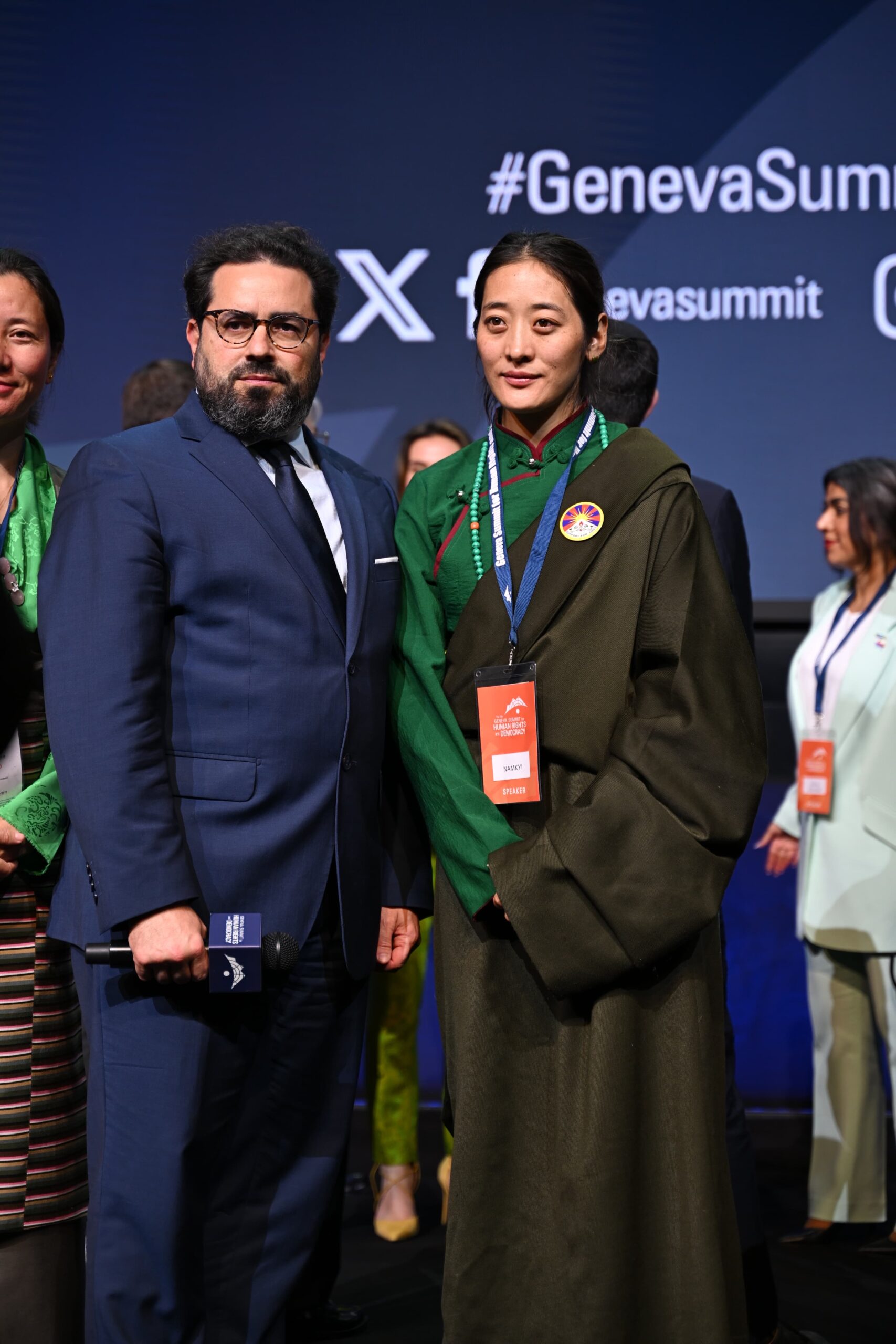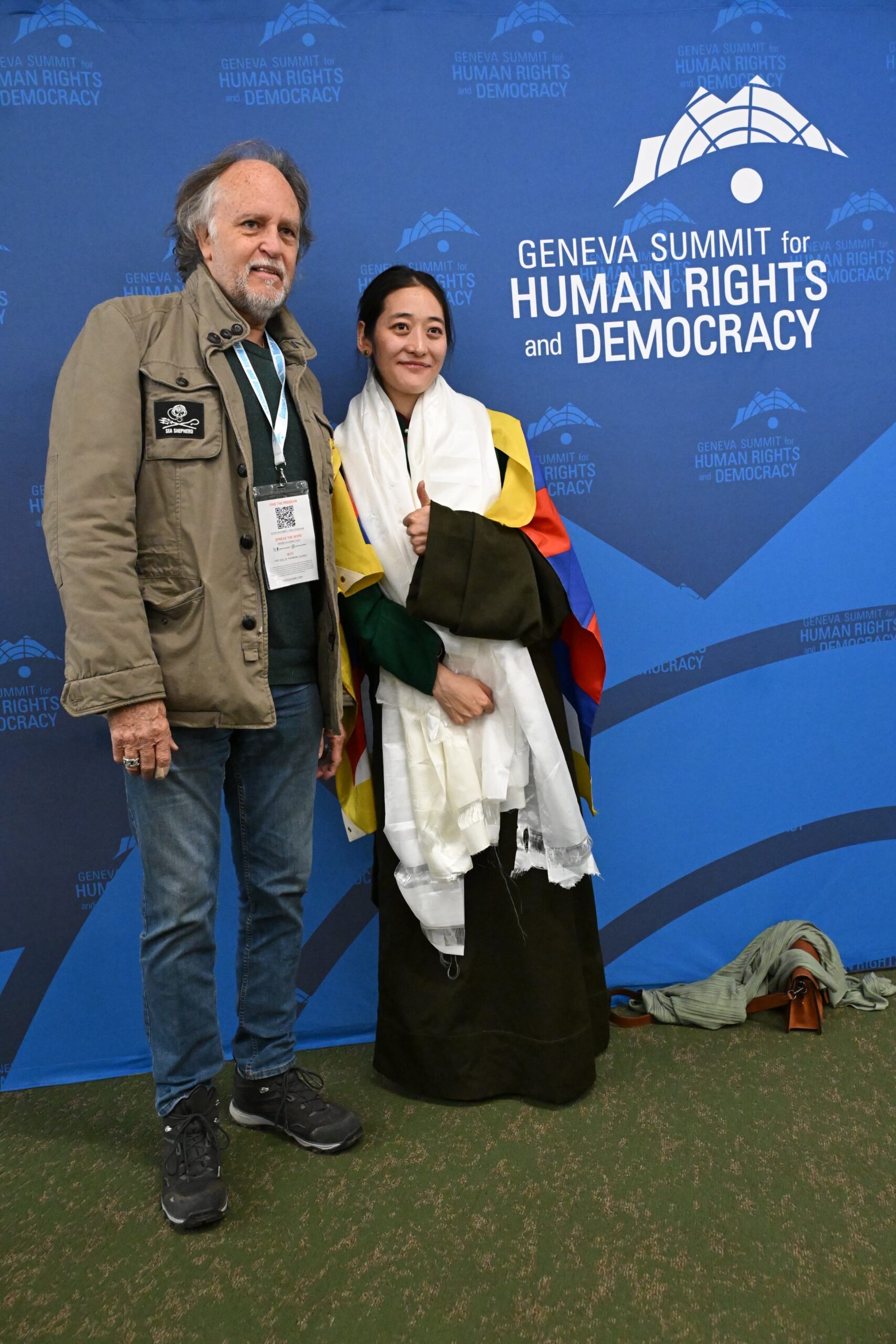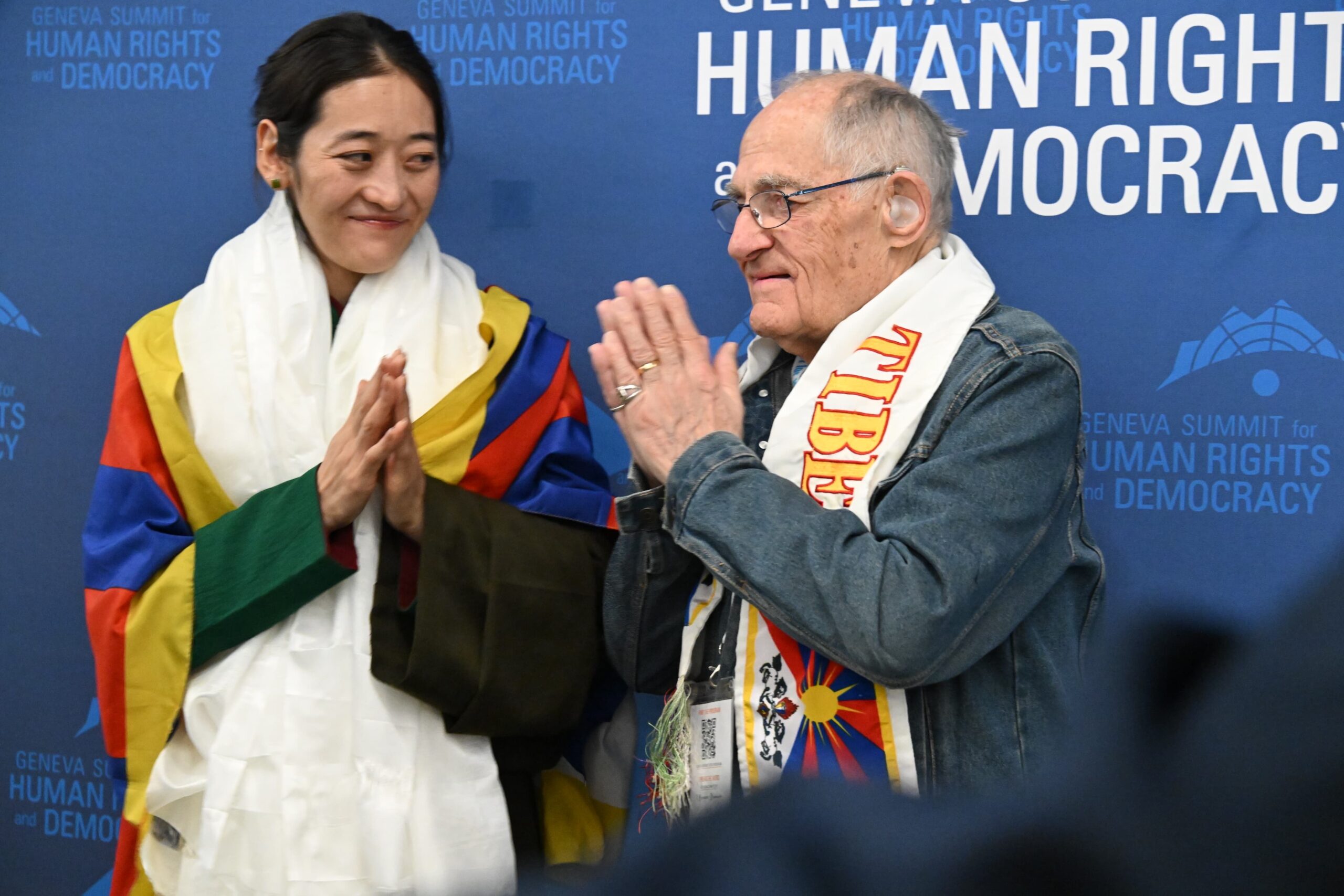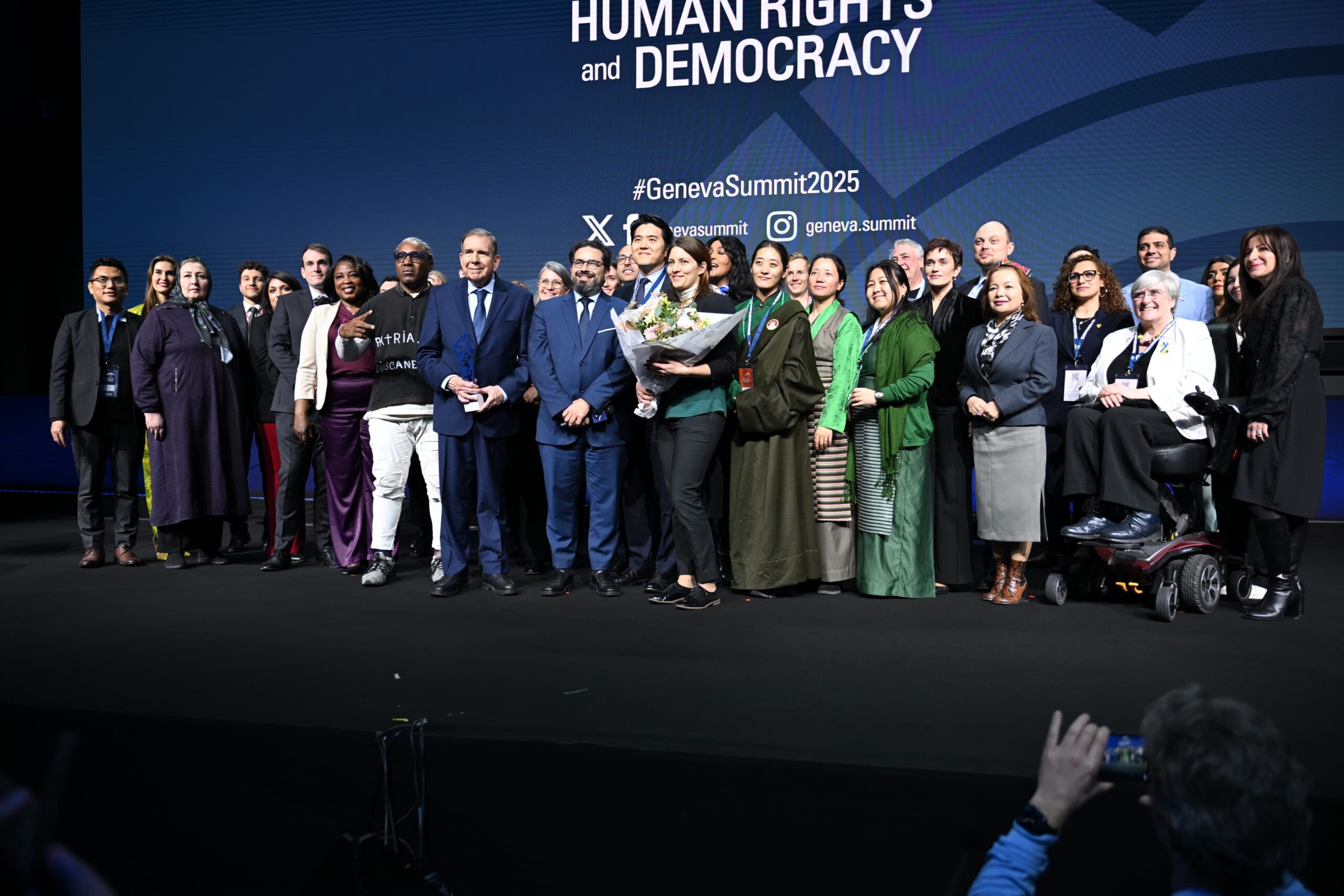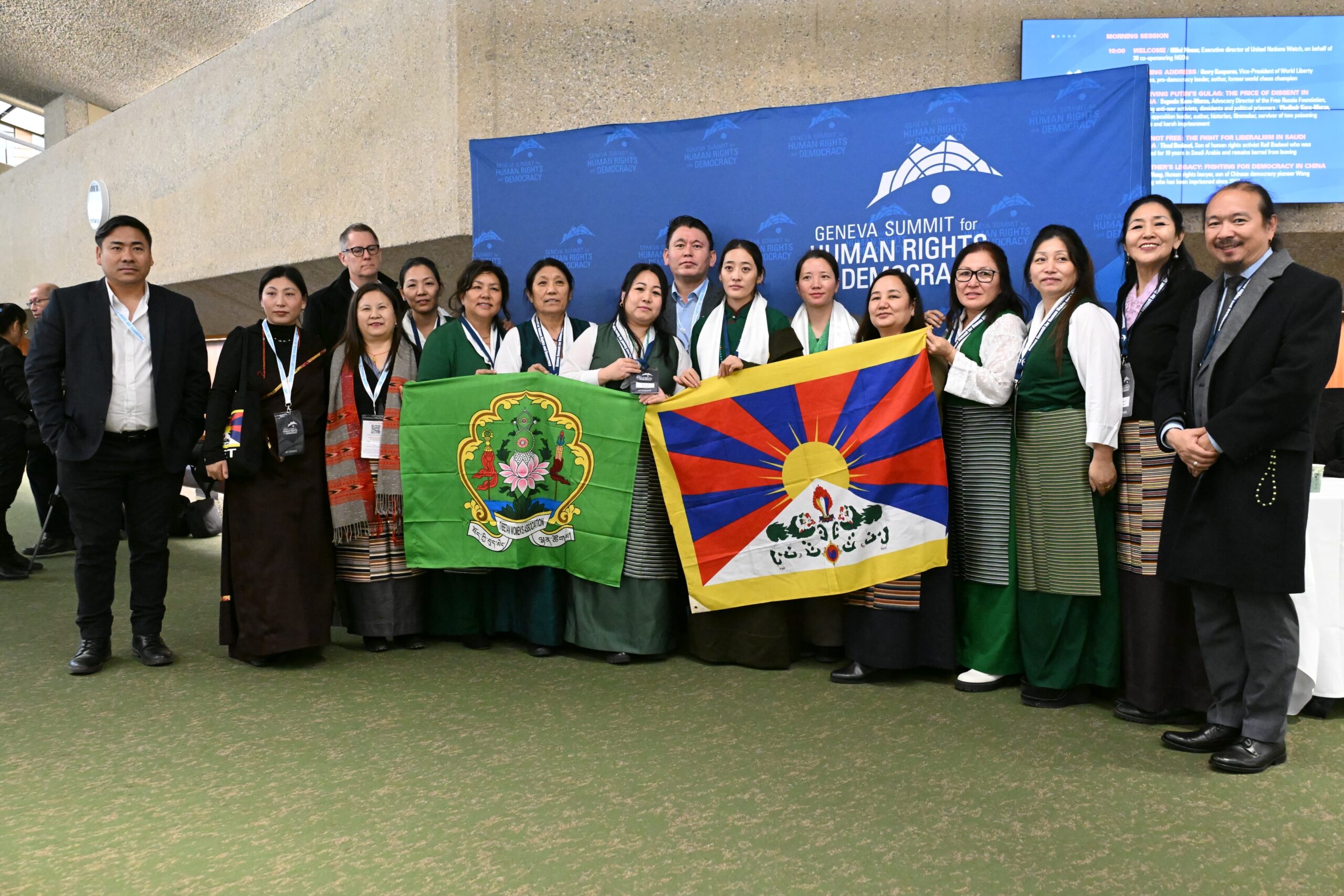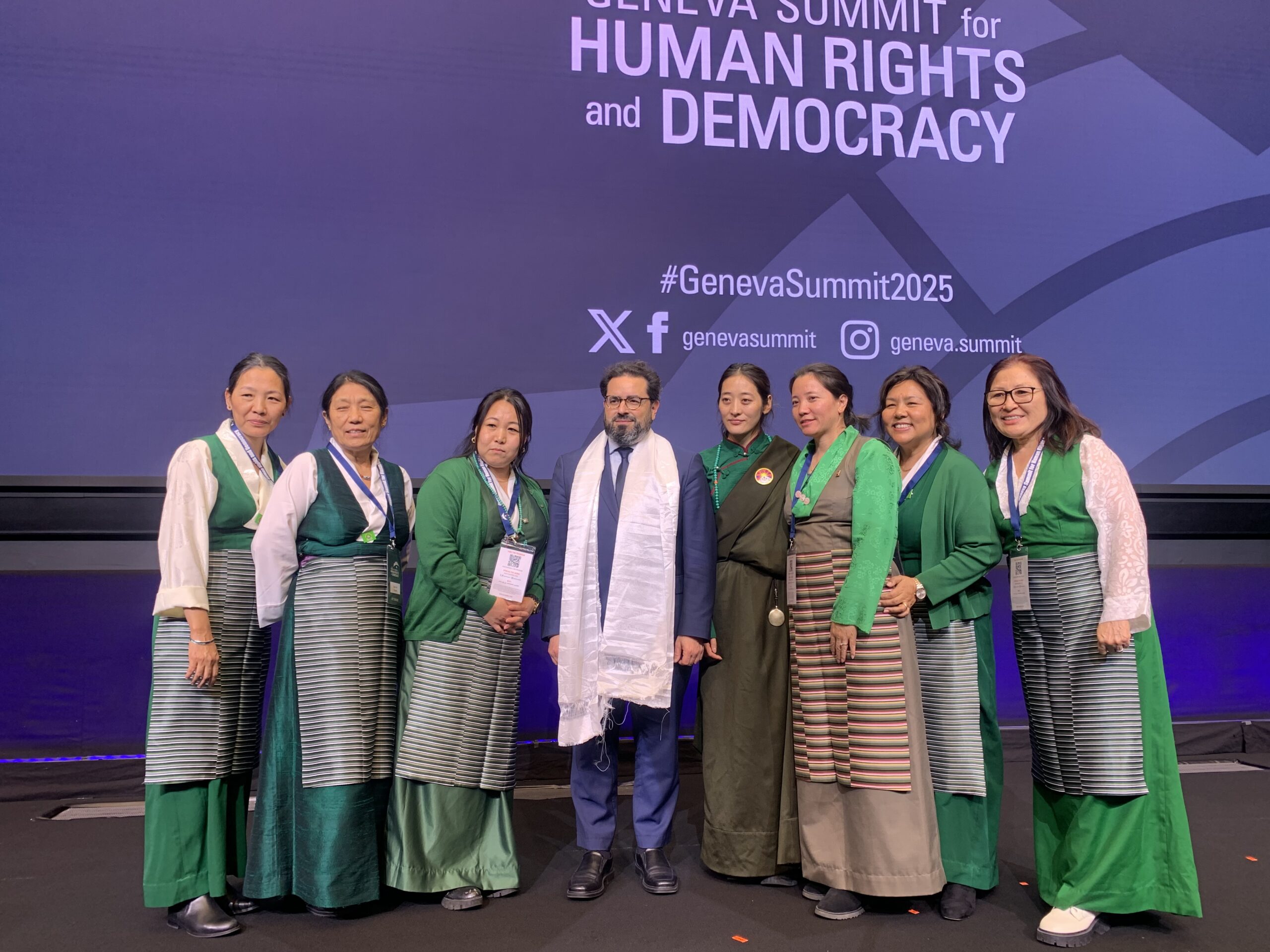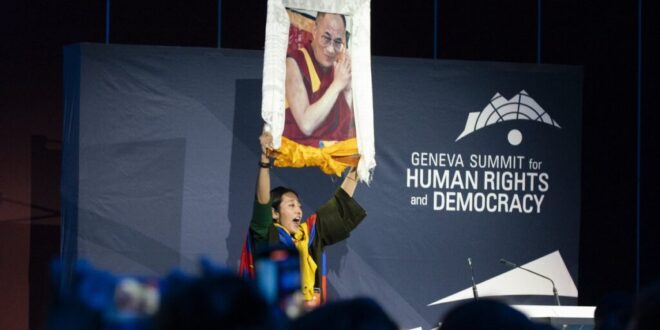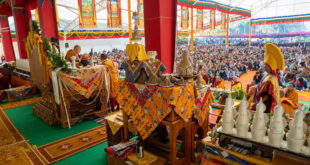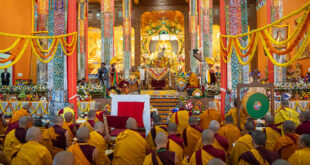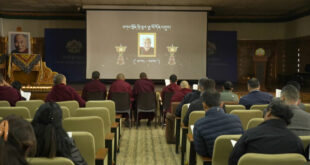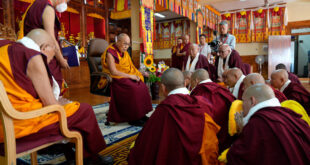Geneva: The 17th Geneva Summit 2025 for Human Rights and Democracy officially commenced yesterday on 18 February 2025 at the Centre International de Conférences Genève (CICG). This prestigious international platform, dedicated to addressing global human rights violations, began with a welcome speech by Hillel Neuer, Executive Director of United Nations Watch. The opening address was delivered by Garry Kasparov, Vice President of the World Liberty Congress, pro-democracy leader, author, and former world chess champion.
This year’s summit features a distinguished lineup of speakers highlighting human rights abuses in Russia, Saudi Arabia, China, Belarus, Hong Kong, the Uyghur region, Vietnam, and Iran. Among the speakers, Namkyi, a Tibetan activist and former political prisoner, shared her harrowing experiences of persecution by Chinese authorities.
Before delivering her speech, a short video clip of her 2015 protest was shown, providing a compelling visual account of her activism and the severe consequences she faced. “I personally witnessed how Chinese military forces were cracking down on Tibetans in my region and on Kirti Monastery. My heart was filled with sadness and suffering, which compelled me to rise up and raise my voice,” she stated.
On 21 October 2015, Namkyi and her cousin, Tenzin Dolma, staged a protest at Martyrs’ Square in Ngaba County, holding large photos of His Holiness the Dalai Lama and calling for his return to Tibet and freedom for their homeland. “About 10 minutes into our protest, we heard a loud noise from behind, and a group of police officers rushed at us. They forcefully grabbed the photos from our hands, muffled our voices, pinned us to the ground, and eventually handcuffed us,” she recalled.
The two were detained at the Ngaba County detention centre before being transferred to Barkham detention centre at midnight. Namkyi detailed the extreme torture she endured in detention, including
- Sleep deprivation and exposure to extreme heat up to 150–160 degrees.
- Physical abuse, including slapping, kicking, and beatings by male officers.
- Psychological manipulation, with interrogators attempting to extract confessions by offering reduced sentences in exchange for false testimonies.
After over a year in detention, on 23 November 2016, Namkyi and her cousin stood trial at the Trochu County People’s Court. Prosecutors urged them to confess regret or accept false charges of murder, theft, or drug dealing in exchange for lighter sentences. They refused. Despite being only 16 years old, Chinese authorities altered Namkyi’s official age to 18, sentencing her to three years in prison for “betraying the country” and engaging in “separatist activities.”
Namkyi described the harsh conditions at Sichuan Province Women’s Prison:
- Mandatory military training and enforced study of Chinese laws and “patriotic education.”
- Racial discrimination, with Tibetan prisoners forbidden from speaking to each other.
- Severe malnutrition, lack of proper medical care, and exposure to extreme cold.
- Forced labor, including assembling copper wires under intense artificial light, causing long-term damage to her eyes.
Her cousin, Tenzin Dolma, was assigned to make cigarette cases and later worked on assembling watches. Upon completing their sentences on 21 October 2018, the two were detained for an additional week at the Padma Lhatang Dispatch Center in Ngaba County. Their families were forced to sign guarantee letters, and their names were added to a government blacklist.
“Although my body was released from prison, my mind continued to be imprisoned,” Namkyi said, describing the constant surveillance, police interrogations, and restrictions on her movement. “I was frequently summoned to the police station, my phone was confiscated, and I had to report my whereabouts and interactions regularly. Under such hardships, a question kept recurring in my mind: Does the United Nations know about the suffering in Tibet? Is there anyone who will support us?”
Determined to share her story, Namkyi escaped into exile in India on 13 May 2023, seeking refuge in a country where she could speak openly about the plight of Tibetans.
“Thank you for giving me this platform. If anyone, anywhere, provides such a platform, I will share the real situation,” she said. She concluded her speech with a powerful message to the international community: “This is not just my life story, but the story of thousands of Tibetans. Millions of Tibetans inside Tibet are living under such suffering even today. Therefore, please continue to support Tibet and the aspirations of the Tibetan people to see His Holiness the Dalai Lama’s return to Tibet.”
The Geneva Summit for Human Rights and Democracy aims to spotlight urgent human rights situations worldwide. Organised by a coalition of over 25 human rights organisations, the 17th annual summit brings together leading dissidents and activists from countries such as Russia, Cuba, Iran, Hong Kong, Saudi Arabia, Tibet, and Eritrea. The primary objective is to provide a platform for these courageous individuals to share their testimonies, raise awareness about systemic abuses, and advocate for democratic reforms. By amplifying their voices, the summit seeks to mobilise international support and action to address human rights violations globally.
-Report filed by Tibet Bureau Geneva
